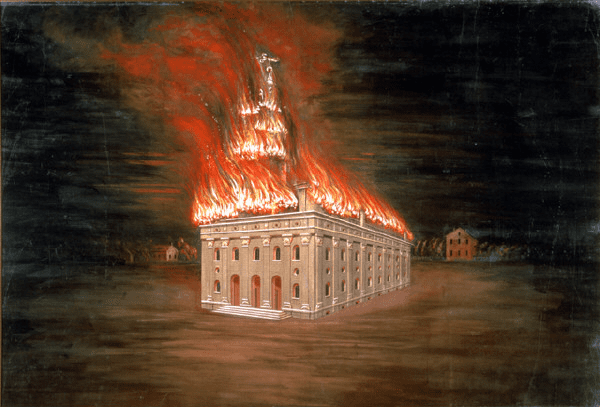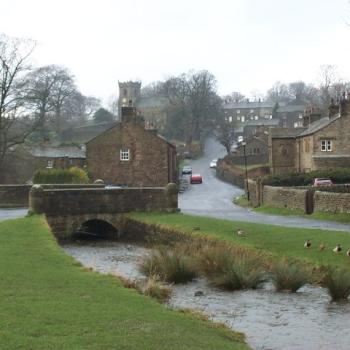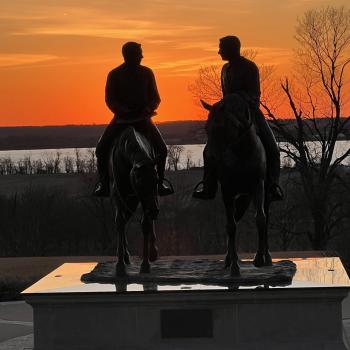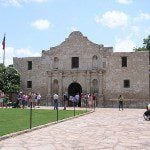
(Wikimedia Commons public domain photograph)
Four items went up today on the website of the Interpreter Foundation. Please do enjoy!
This presentation, originally delivered on Saturday, 22 September 2012, traces the modern-day usage and understanding of temples from the Kirtland Temple to Nauvoo and the Salt Lake Temple. Architecture was used to teach principles. While the Kirtland Temple was preparatory (think of the vision of Christ and the conferral of keys by Abraham, Moses, Abraham, Elias, and finally Elijah), the Nauvoo Temple was dedicated to ritual usage. In 1879, the Church reduced temple usage to rituals, and thus assembly rooms are missing from later temples. Through his paper, Cowan shows how temples have changed according to revelation and how prophets have seen models in vision that then have been incorporated in the temples God’s people built.
Interpreter Radio Show — November 13, 2022
In this first hour of the 13 November 2022 installment of the Interpreter Radio Show, Terry Hutchinson, John Gee, and Kevin Christensen discussed Kevin’s recent article on Margaret Barker, which was published in Interpreter: A Journal of Latter-day Saint Faith and Scholarship. Thereafter, the second portion of the show was devoted to a roundtable discussing the upcoming “Come, Follow Me” lesson #52 (Christmas). These discussions have now been purified from commercial and other intrusions, archived, and made available to you at no charge. But you don’t have to wait for them to be archived! The Interpreter Radio Show can be heard live, with no safety net, on Sunday evenings from 7 to 9 PM (MDT). This can be done in the Salt Lake Valley on K-TALK, AM 1640. Within the Salt Lake Valley or beyond it, you can listen live on the Internet at ktalkmedia.com.
Interpreter Radio Show — November 6, 2022
During the installment of the Interpreter Radio Show that was broadcast on 6 November 2022, the powerful quartet of Neal Rappleye, Jasmin Rappleye, Stephen O. Smoot, and Hales Swift first recapped the recent Temple on Mount Zion 2022 Conference. Then the second portion of the show was given over to a roundtable discussing the upcoming “Come,” Follow Me” lesson #51 (Malachi). Both discussions are now archived and available to you at no charge via the link above. Join the many millions along the Wasatch Front who rejoice at the live weekly broadcast of The Interpreter Radio Show each and every Sunday evening from 7 to 9 PM (MDT), on K-TALK, AM 1640. If you can’t listen via radio, you can nonetheless listen live on the Internet at ktalkmedia.com.
Interpreter Radio Show — October 30, 2022
In this, the 30 October 2022 episode of the fabled Interpreter Radio Show, Martin Tanner and Terry Hutchinson spent the first hour discussing various books on the New Testament. Among these, they discussed Terry’s new book, The Temple Pathway to Heaven, co-authored with Grant Gifford. You can listen to or download the 30 October 2022 broadcast of the Interpreter Radio Show at the link provided above. The second portion of the show was devoted to a roundtable discussing the upcoming “Come, Follow Me” lesson #50 (Haggai; Zechariah 1–3; 7–14). The Interpreter Radio Show can be heard live on Sunday evenings each and every week of the year, from 7 to 9 PM (MDT), on K-TALK, AM 1640. Alternatively, you can listen live on the Internet at ktalkmedia.com.

Wikimedia Commons public domain image
I wrote this newspaper column for Thanksgiving 2013:
It’s the season of Thanksgiving, and, so, minds like mine turn naturally to etymology, to word origins. Please be patient. There is method in my madness.
The origin of the word “religion” is obscure, and has been much debated. But all suggestions for it seem to agree that remembrance, an awareness of dependence and obligation, is at the core of what it means to be religious. The ancient Roman politician and writer Cicero derived the word from “legere,” “to read,” believing that it meant “to go over” something again in the sense of “re-reading,” “re-thinking” or considering it very carefully. Other writers, ancient and modern, connect it with the word “religare,” “to bind fast,” from which we also receive our modern verb “to rely.” They emphasize the bond between humans and the divine. Still others suggest a distant relationship to the archaic English verb “to reck” or “to reckon,” meaning “to pay attention to,” or that it stems from the Latin adjective “religiens,” “careful” or “mindful,” which is the opposite of “negligens.”
Most if not all religions are saturated with exhortations to remember, and with practices designed to help us to do so. The liturgical year of many Jews and Christians, for example, is a profound teaching device centered on events (e.g., Passover, Easter, the Day of Atonement, the Feast of Tabernacles, Hannukah, and Christ’s Nativity) that are charged with deep meaning for believers. The Qur’an continually encourages readers to “remember,” and not to be “neglectful” or “heedless” of the mighty acts of God, and it condemns those who fail to reflect on the lessons of the past.
In the Mormon context, the most obvious example of memorializing is the weekly sacrament. Those who partake are to do so “in remembrance” of Christ’s suffering on their behalf, and to “always remember him.” But examples abound. The ordinances of the temple remind us, for instance, that the creation of the world was purposeful, and that we can only enter into his presence again through the wounds he suffered in his atoning sacrifice. The scriptures were essential, Alma taught his son Helaman, because they “enlarged the memory of this people” (Alma 37:8); had they not been preserved, explained King Benjamin (in Mosiah 1:3-5), the Nephites would have fallen into “ignorance” and “dwindled in unbelief.” Hence the vital importance, even today, of repeatedly immersing ourselves in the scriptures, which continually admonish us to “remember.”
Even such modern programs as Pioneer Day celebrations throughout the Church and reenactments of the handcart treks in Africa, Europe, and the Philippines, as well as in Wyoming, allow us to “remember,” and to make ourselves one with our spiritual progenitors (whether or not we are biological kin). Just as the nineteenth century pioneers saw themselves as a modern Israel led by an American Moses, we are to identify with them, and, thus, with the ancient people of the Exodus. Latter-day Saints are to relive the experience, in their own way, of former-day Saints. “I did liken all scriptures unto us,” Nephi explains, “that it might be for our profit and learning” (1 Nephi 19:23)
Abraham Lincoln’s proclamation of a national “day of Thanksgiving and Praise,” issued 150 years ago on October 3, 1863, was a summons to explicitly religious reflection on the many blessings that the American people had received even amidst the sadness, death, and destruction of the still ongoing Civil War. While it says precisely nothing about turkey, stuffing, cranberry sauce, or pumpkin pie, it calls upon the nation to remember “our beneficent Father who dwelleth in the heavens” and, in “humble penitence for our national perverseness and disobedience,” to seek his caring help for all those who were suffering.
On this Thanksgiving Day, accordingly, it is worthwhile to recall that the English verb “to thank” derives from the same root as the verb “to think.” (Compare the equivalent German words “danken” and “denken.”) With all the busyness and the rush of the day, we should still try to find time to reflect.
Thanksgiving isn’t about eating. It isn’t even, really, about spending time with family and friends, important as those are. It is, or should be, about thinking, about contemplation. From its very origin, it was about considering the debt that we owe to God and to the others who laid the foundation of the blessings and prosperity that we enjoy, about reflecting, repenting, and seeking to extend those blessings to others.












